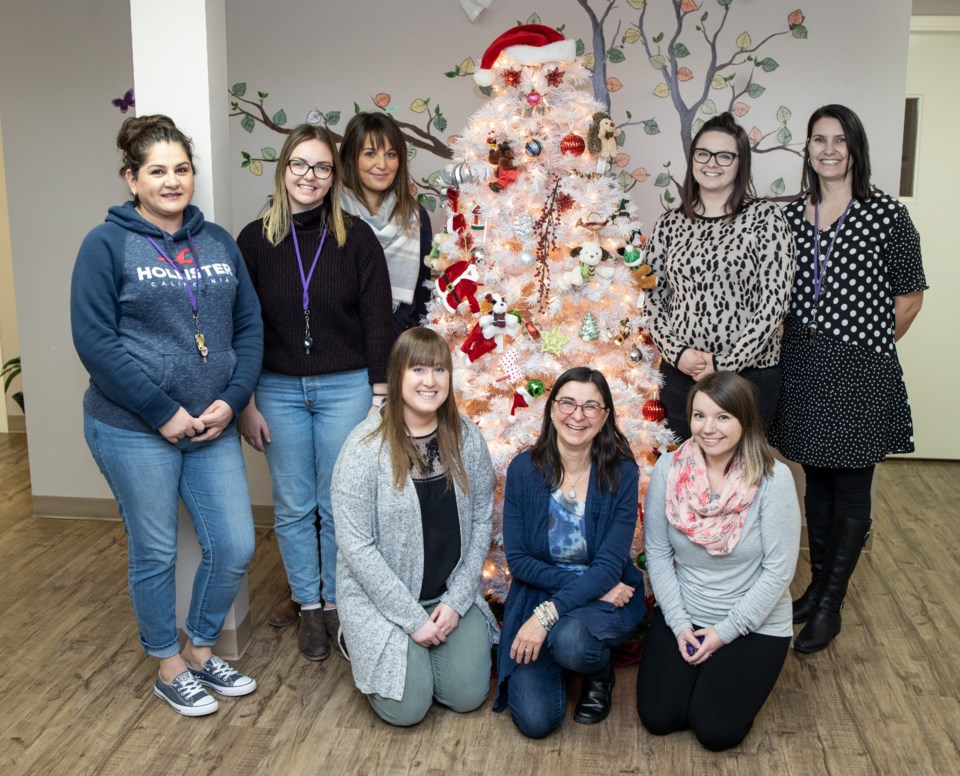A first of its kind project in a rural setting aimed at eliminating domestic abuse is off and running this week.
Rowan House’s Safe at Home four-year pilot project launched on March 1 as an alternative approach to families experiencing domestic abuse in which the abusive partner moves out of the home to an off-site facility or independent living while the women and children remain in their home.
Rowan House Society chief executive officer Timmi Shorr said the program has been in the works for a couple years borne out of consultations by Women and Gender Equality Canada (WAGE) with survivors of domestic violence.
“The survivors were challenging them to look at different ways to address the issue of domestic abuse,” Shorr said. “We’ve been working here with Rowan House for 21 years in the region and really nothing has changed so we had to look at some innovative ways.
“(WAGE) put out a call for projects that could look at this issue in a different light. We were successful in getting a grant for it and this was the idea we had, that to address this whole issue we had to look at both sides. We proposed to start this program with the abusers themselves, but at the same time, still providing supports for the women and children.”
The project, based in Claresholm, requires a great deal of community support, with a comprehensive stakeholder steering group put together for the program that includes the RCMP, Lander Treatment Centre, Claresholm FCSS as well as the probation and court system out of Lethbridge, to name just a few.
“From there it’s just going to be pulling on the resources needed for the particular men we have,” Shorr said.
“They’re going to be the men that are looking to make a change, they want something better for their lives, they’re feeling lost and want to be better. They’re going to either apply or be referred by agencies and we have space in our home for two residents at a time, but we’re also going to run it as a community program.”
The residential program is two months in the house for the abuser, with the women and children remaining at home and not having to come into a shelter.
“There will be group therapy and individual sessions, working with our partners to address issues the guys are having, look at what is a healthy relationship,” she said. “And just get them to really own that part that they have in this and get them moving along a path that can have them be living in a healthy relationship.”
Shorr added the program doesn’t end at eight weeks, with support for another phase for up to a whole year in duration. The second phase, which lasts seven weeks, also features weekly psycho-education or group therapy sessions and monthly individual counselling or case management sessions.
The aftercare program for the following eight months features monthly group therapy and individual counselling.
The program is limited to men, including those who identify as male, 18 years old and above who have been involved in a domestic abuse incident.
“Ultimately what we want is for there not to be domestic abuse,” Shorr said. “So by working with the abusers as well as the families that are involved in these situations that we can decrease the prevalence of it.
“Just the fact that we’re talking about it is so huge and educating ourselves about it, just having people have it out in the open and then have these people feel like they can ask for help and it’s OK.
“And then to not have it anymore would be the ultimate.”
Currently the project has a rural focus with the potential to expand into other areas in the future.
“We have an independent evaluator that’s working with us and she will develop a blueprint so it will be able to be copied in other communities,” she said. “We’re testing best practices, because Rowan House is the expert around domestic abuse in this region, so what’s that going to look like for our numbers? What kind of impact is that going to have on the issue?”
For more information on the program go to rowanhouse.ca/safe-at-home




